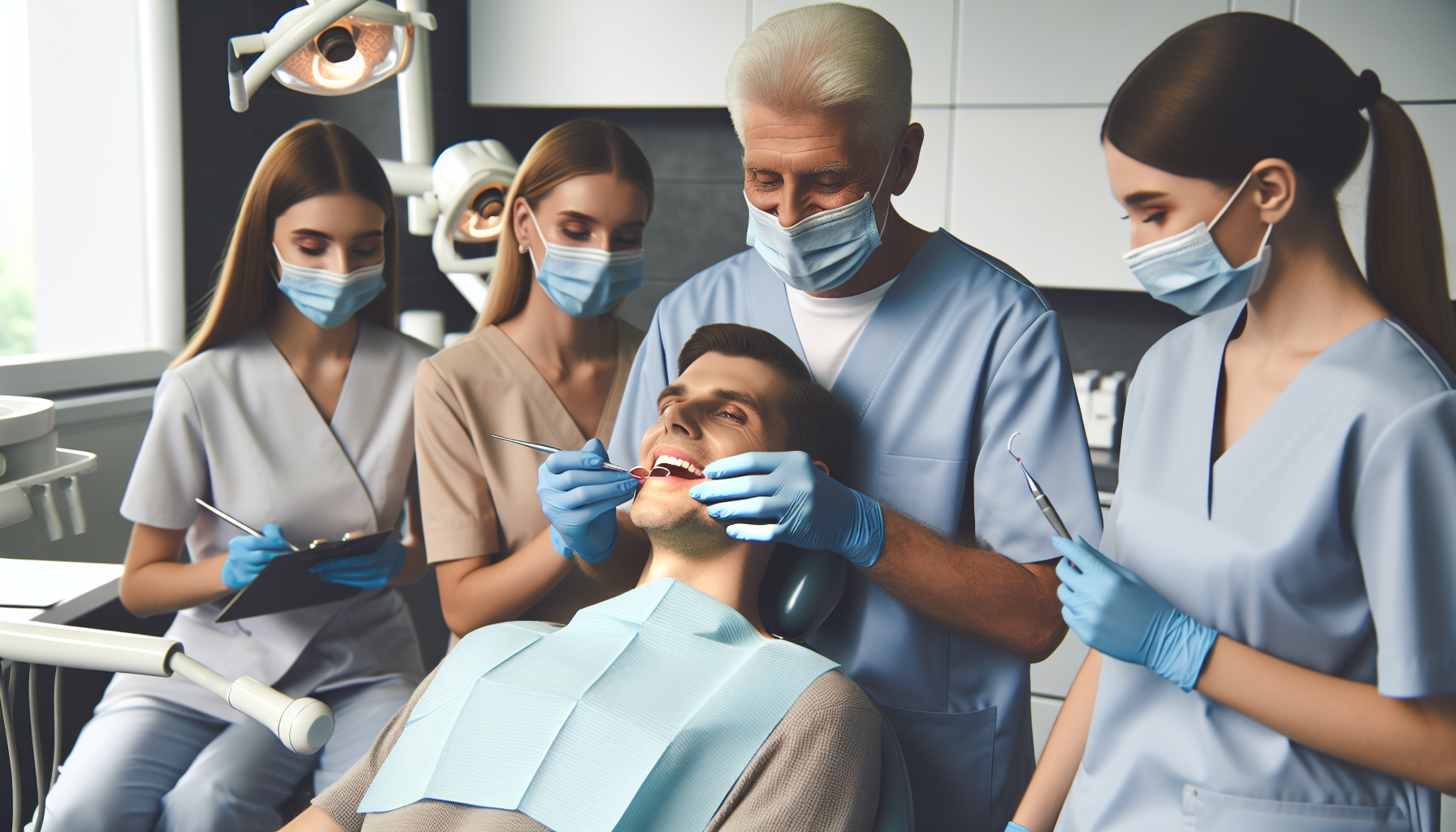How Oral Health Impacts Overall Wellbeing According to WHO Experts
I. Introduction: Why Oral Health Matters for Overall Wellbeing
Your smile is more than a sign of happiness—it’s a reflection of your overall health. According to World Health Organization (WHO) experts, oral health is deeply connected to our general wellbeing. From ensuring nutritional balance to preventing chronic diseases, maintaining oral hygiene plays a vital role in a longer, healthier life.
WHO emphasizes that oral health isn’t only about having clean teeth; it influences systemic conditions, mental wellbeing, and quality of life. When your mouth is healthy, your entire body benefits—a powerful truth grounded in decades of scientific evidence.
II. The Hidden Link Between Oral Health and Chronic Diseases
The mouth acts as a gateway to the rest of the body. Studies show that periodontal (gum) disease can be linked to systemic inflammation—a process associated with heart disease, diabetes, and even stroke. WHO health data reveals that poor oral hygiene may contribute to chronic conditions by allowing harmful bacteria to enter the bloodstream, leading to inflammation throughout the body.
For example, individuals with untreated periodontal disease are more likely to experience elevated inflammatory markers, increasing cardiovascular risk. Likewise, diabetic patients often face worsened oral infections, creating a harmful feedback loop. By caring for your oral health, you take proactive steps toward managing or even preventing these diseases.
- Heart Disease: Bacterial infections in the mouth can cause inflammation in blood vessels, raising heart disease risk.
- Diabetes: Persistent gum inflammation can make blood sugar levels harder to control.
- Respiratory Conditions: Oral bacteria may be inhaled into the lungs, potentially aggravating respiratory infections.
— WHO Science in 5 Podcast, Episode 85
III. Oral Health as an Indicator of Nutritional and Immune Health
Your oral condition reveals valuable clues about nutrition and immune strength. Weak enamel and bleeding gums may indicate vitamin C deficiency or overall poor nutrition. WHO experts highlight that maintaining a balanced diet rich in fruits, vegetables, and calcium supports healthy teeth and gums while enhancing immune response.
Conversely, oral infections weaken the body’s defenses, making it more susceptible to other illnesses. A healthy mouth can thus serve as both a mirror and a shield—showing the state of internal health while actively protecting against infection.
- Nutrition and oral health: Diets high in processed sugar fuel harmful bacteria growth leading to tooth decay.
- Immune support: Good oral hygiene minimizes chronic low-grade infections that strain your immune system.
- Hydration: Adequate water intake maintains saliva flow, which naturally protects teeth and gums.
IV. The Social and Emotional Impact of Oral Health
Oral health extends beyond the physical. WHO research shows significant links between oral conditions and mental wellbeing. People with visible dental problems often experience anxiety, low self-esteem, and communication challenges. These social factors, in turn, influence overall life satisfaction and professional confidence.
Good oral health boosts more than appearance—it enhances personal expression and emotional wellness. A confident smile encourages positive interactions, supports psychological balance, and even contributes to reduced stress levels.
- Self-esteem: Healthy teeth enhance appearance and increase confidence.
- Social connection: Pain-free communication strengthens relationships and emotional resilience.
- Quality of life: The ability to eat, speak, and smile comfortably supports happiness and self-worth.
V. Preventative Care: The Foundation of Lifelong Oral Health
Prevention is always better than treatment. WHO emphasizes that daily oral hygiene and routine check-ups are more cost-effective and beneficial than corrective dental procedures. Good oral habits can dramatically lower your risk of tooth decay and gum disease.
- Brush twice daily for at least two minutes using fluoride toothpaste.
- Floss once daily to clear food particles where brushing can’t reach.
- Use fluoride mouthwash to strengthen enamel and prevent bacteria buildup.
- Plan regular dental visits: Routine check-ups detect early signs of problems for timely intervention.
- Quit smoking: Tobacco damages gum tissue and increases vulnerability to oral cancer.
Professional dental cleaning is also essential. Even with diligent home care, plaque buildup and stains can persist. Scheduling a professional dental cleaning ensures thorough maintenance of oral health and confidence in your smile.
VI. Equitable Access to Oral Health Services: A Global Health Priority
The WHO highlights an urgent need for equitable access to oral healthcare worldwide. In many low- and middle-income communities, oral care remains neglected despite its critical link to systemic health. Socioeconomic and geographic disparities often prevent millions from receiving basic dental treatment or education.
WHO’s oral health action plan calls for stronger integration of dental services into primary healthcare systems. This approach promotes fairness and accessibility for everyone—because oral health is a human right, not a privilege.
- Public awareness campaigns: Promote the importance of brushing, flossing, and regular check-ups globally.
- Affordable care: Governments and NGOs can expand subsidized dental programs.
- Education: Schools and community centers can provide basic oral health training.
— World Health Organization
VII. How Oral Health Promotes Longevity and Quality of Life
The WHO stresses that your mouth’s condition can influence how well—and how long—you live. Strong teeth and healthy gums support balanced nutrition, reduce disease risk, and enhance self-confidence. These interconnections promote both physical vitality and emotional wellbeing throughout life.
- Reduced risk of chronic disease: Healthy oral bacteria balance supports cardiovascular and immune function.
- Better aging process: Proper oral care preserves natural teeth into older age, improving diet and speech.
- Improved life satisfaction: A confident, functional smile encourages social participation and independence.
As WHO experts affirm, prioritizing oral health isn’t cosmetic—it’s essential for overall longevity and quality of life.
VIII. Conclusion: Investing in Your Oral Health for a Healthier Future
Your mouth tells your body’s story—every bite, every smile, every conversation. WHO insights confirm that oral health and overall wellbeing are inseparable. By practicing preventive care, nurturing daily habits, and promoting equitable access to dental services, we protect not only our smiles but our entire selves.
Make oral care part of your everyday wellness routine and inspire those around you to do the same. If you want a healthier body, start with your teeth—and let your smile lead the way.
Frequently Asked Questions
1. How does oral health influence overall wellbeing?
Oral health affects the entire body by preventing inflammation, supporting proper nutrition, and improving mental health. A healthy mouth lowers the risk of systemic diseases such as heart disease, diabetes, and respiratory illness.
2. What does the WHO say about the global state of oral health?
According to WHO experts, oral diseases affect nearly half of the world’s population—making it one of the most common global health challenges. The organization calls for integrating oral healthcare into primary health systems.
3. Can poor oral health impact mental wellbeing?
Yes. WHO findings show that oral pain and cosmetic issues often cause stress, anxiety, or low self-esteem. Maintaining good oral hygiene improves self-confidence and emotional stability.
4. How can diet improve oral and overall health?
A diet rich in fruits, vegetables, whole grains, and calcium supports strong teeth and gum health. Limiting sugar intake also helps prevent cavities, stabilizes energy, and contributes to holistic wellness.
5. What are WHO’s recommendations for maintaining good oral health?
WHO encourages individuals to brush twice daily, floss, use fluoride, eat nutritious foods, quit tobacco, and have regular dental check-ups. Prevention is the most effective way to maintain oral and general wellbeing.
Post Disclaimer
DentalUp is for educational purposes only and cannot accept personal dental information such as x-rays, photos, or treatment details. See full disclaimer here.





